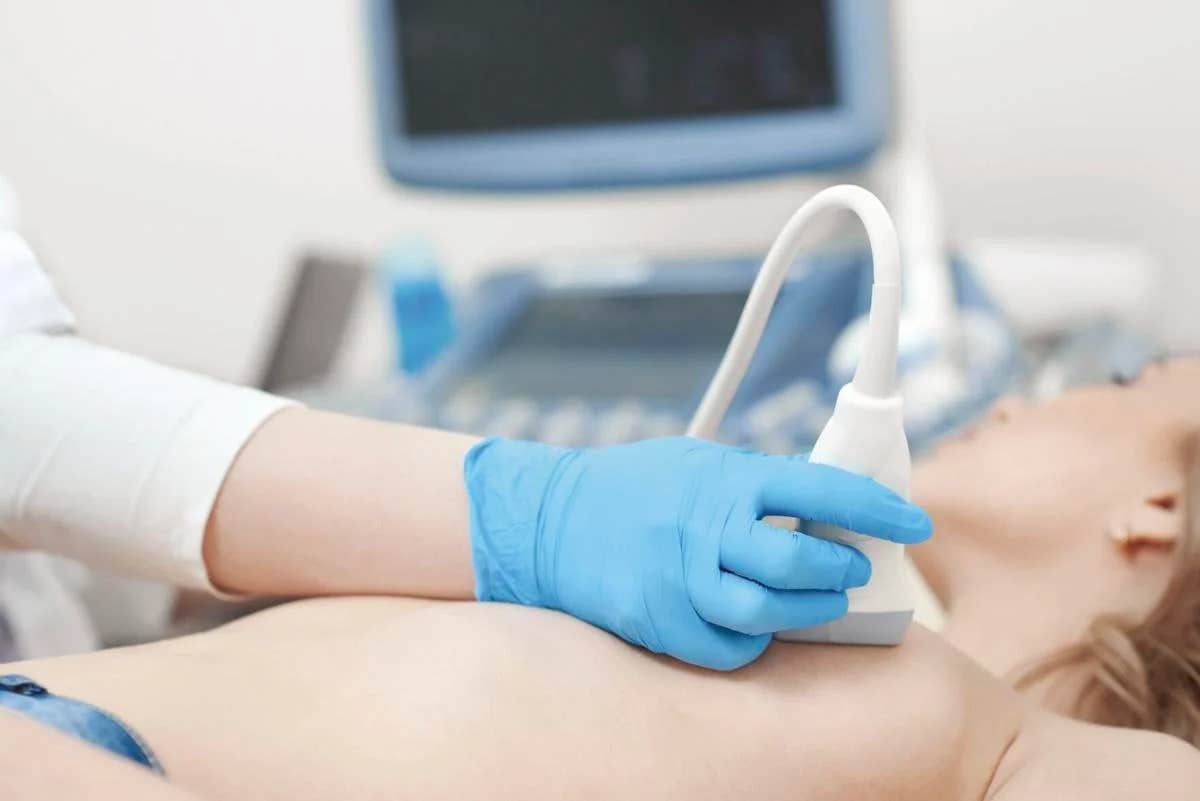Scientists develop revolutionary way of treating advanced breast cancer
Researchers introduced a promising development in the treatment of breast cancer with the drug enobosarm.

Researchers introduced a promising development in the treatment of breast cancer with the drug enobosarm. (CREDIT: Cleveland Clinic)
In a groundbreaking study published in The Lancet Oncology, researchers introduced a promising development in the treatment of breast cancer with the drug enobosarm.
Enobosarm functions similarly to testosterone, aiming to enhance libido, fertility, prostate growth, and muscle strength. By mimicking the effects of testosterone, this compound has the potential to boost lean body mass, offering relief from muscle wasting often observed in the hypermetabolic condition of cancer cachexia.
This selective androgen receptor modulator, which targets the male sex hormone receptor, has shown anti-tumor effects in patients with estrogen receptor-positive breast cancer.
The study, led by Professor Carlo Palmieri of the University of Liverpool and The Clatterbridge Cancer Centre NHS Foundation Trust, marks a significant shift from the traditional focus on estrogen receptor inhibition in treating this cancer type.
Related Stories:
"These results are very encouraging," Professor Palmieri stated, highlighting the drug's effectiveness in advanced/metastatic breast cancer cases. He further emphasized, "This is the first clinical proof that a non-estrogen receptor approach with a selective androgen receptor modulator can result in clinical benefit," referencing the foundation laid by pre-clinical evidence published in Nature Medicine.
For over four decades, the primary treatment for estrogen receptor-positive breast cancer has been to directly target and inhibit the estrogen receptor. The introduction of enobosarm represents a novel approach by activating the androgen receptor, known to suppress tumor growth in such breast cancers.
This international study, spearheaded by Dr. Beth Overmoyer of the Dana-Farber Cancer Institute in Boston, USA, evaluated enobosarm's efficacy and safety across multiple sites. The research involved 136 postmenopausal women diagnosed with locally advanced or metastatic ER-positive, HER2-negative breast cancer.
AR and ER signaling and crosstalk in breast cancer. (CREDIT: Nature)
HER2, or human epidermal growth factor receptor 2, is a protein that can promote cancer cell growth. The findings revealed that enobosarm not only exhibited anti-tumor properties but was also well-tolerated by patients, with minimal impact on their quality of life.
The significance of these findings cannot be overstated. They provide a solid basis for the further development and assessment of enobosarm and similar agents that stimulate the androgen receptor, targeting AR-positive, ER-positive, HER2-negative advanced breast cancer.
This study presents a shift in the paradigm of breast cancer treatment, offering hope for new therapeutic strategies that could potentially improve the lives of those affected by this condition.
This publication lays the groundwork for future exploration into non-estrogen receptor treatments, signaling a new horizon in the fight against breast cancer.
Risk factors for developing breast cancer
According to the Mayo Clinic, factors that may increase the risk of breast cancer include:
A family history of breast cancer. If a parent, sibling or child had breast cancer, your risk of breast cancer is increased. The risk is higher if your family has a history of getting breast cancer at a young age. The risk also is higher if you have multiple family members with breast cancer. Still, most people diagnosed with breast cancer don't have a family history of the disease.
A personal history of breast cancer. If you've had cancer in one breast, you have an increased risk of getting cancer in the other breast.
A personal history of breast conditions. Certain breast conditions are markers for a higher risk of breast cancer. These conditions include lobular carcinoma in situ, also called LCIS, and atypical hyperplasia of the breast. If you've had a breast biopsy that found one of these conditions, you have an increased risk of breast cancer.
Beginning your period at a younger age. Beginning your period before age 12 increases your risk of breast cancer.
Beginning menopause at an older age. Beginning menopause after age 55 increases the risk of breast cancer.
Being female. Women are much more likely than men are to get breast cancer. Everyone is born with some breast tissue, so anyone can get breast cancer.
Dense breast tissue. Breast tissue is made up of fatty tissue and dense tissue. Dense tissue is made of milk glands, milk ducts and fibrous tissue. If you have dense breasts, you have more dense tissue than fatty tissue in your breasts. Having dense breasts can make it harder to detect breast cancer on a mammogram. If a mammogram showed that you have dense breasts, your risk of breast cancer is increased. Talk with your healthcare team about other tests you might have in addition to mammograms to look for breast cancer.
Drinking alcohol. Drinking alcohol increases the risk of breast cancer.
Having your first child at an older age. Giving birth to your first child after age 30 may increase the risk of breast cancer.
Having never been pregnant. Having been pregnant one or more times lowers the risk of breast cancer. Never having been pregnant increases the risk.
Increasing age. The risk of breast cancer goes up as you get older.
Inherited DNA changes that increase cancer risk. Certain DNA changes that increase the risk of breast cancer can be passed from parents to children. The most well-known changes are called BRCA1 and BRCA2. These changes can greatly increase your risk of breast cancer and other cancers, but not everyone with these DNA changes gets cancer.
Menopausal hormone therapy. Taking certain hormone therapy medicines to control the symptoms of menopause may increase the risk of breast cancer. The risk is linked to hormone therapy medicines that combine estrogen and progesterone. The risk goes down when you stop taking these medicines.
Obesity. People with obesity have an increased risk of breast cancer.
Radiation exposure. If you received radiation treatments to your chest as a child or young adult, your risk of breast cancer is higher.
For more science and technology stories check out our New Discoveries section at The Brighter Side of News.
Note: Materials provided above by the The Brighter Side of News. Content may be edited for style and length.
Like these kind of feel good stories? Get the Brighter Side of News' newsletter.
Joshua Shavit
Science & Technology Writer | AI and Robotics Reporter
Joshua Shavit is a Los Angeles-based science and technology writer with a passion for exploring the breakthroughs shaping the future. As a contributor to The Brighter Side of News, he focuses on positive and transformative advancements in AI, technology, physics, engineering, robotics and space science. Joshua is currently working towards a Bachelor of Science in Business Administration at the University of California, Berkeley. He combines his academic background with a talent for storytelling, making complex scientific discoveries engaging and accessible. His work highlights the innovators behind the ideas, bringing readers closer to the people driving progress.



